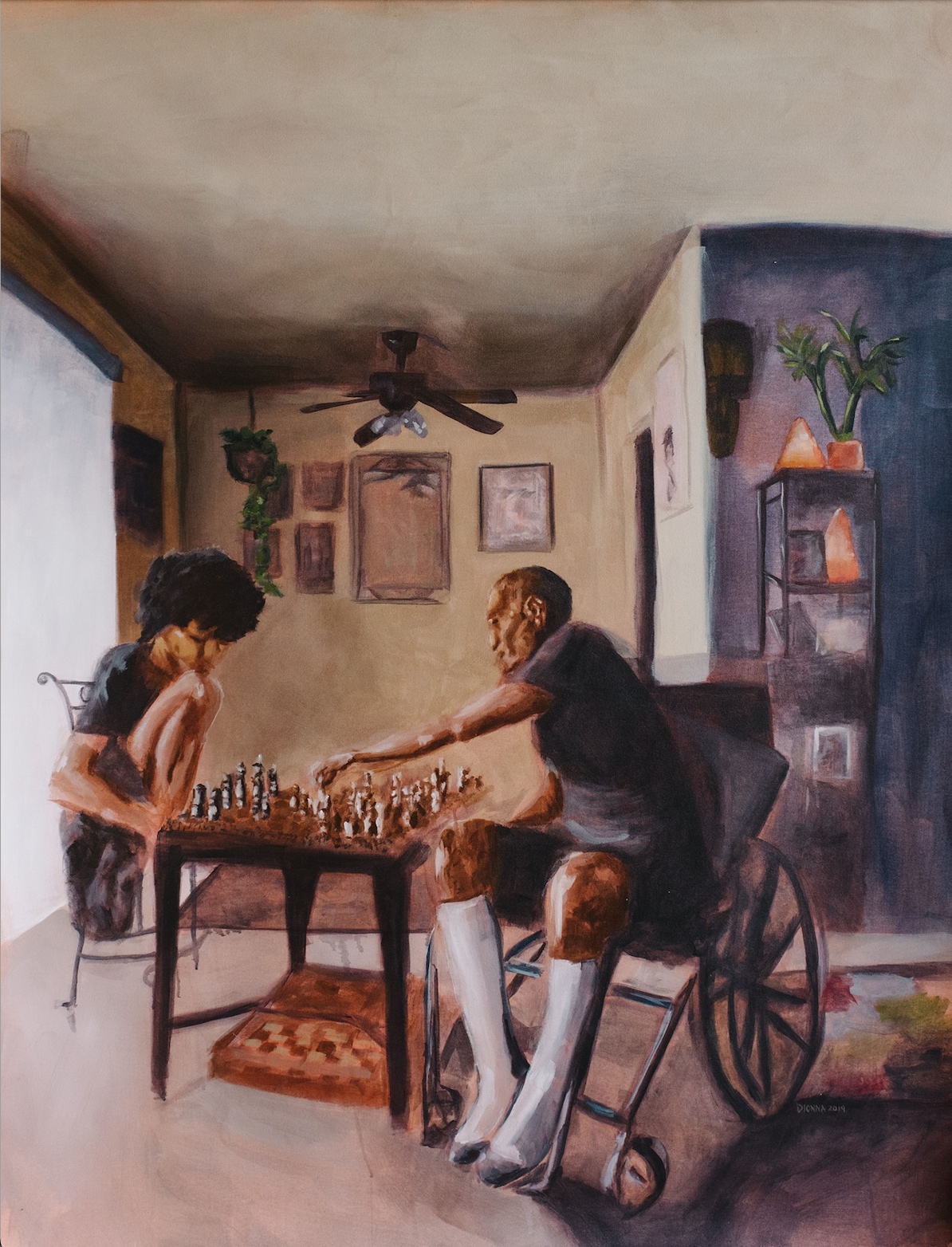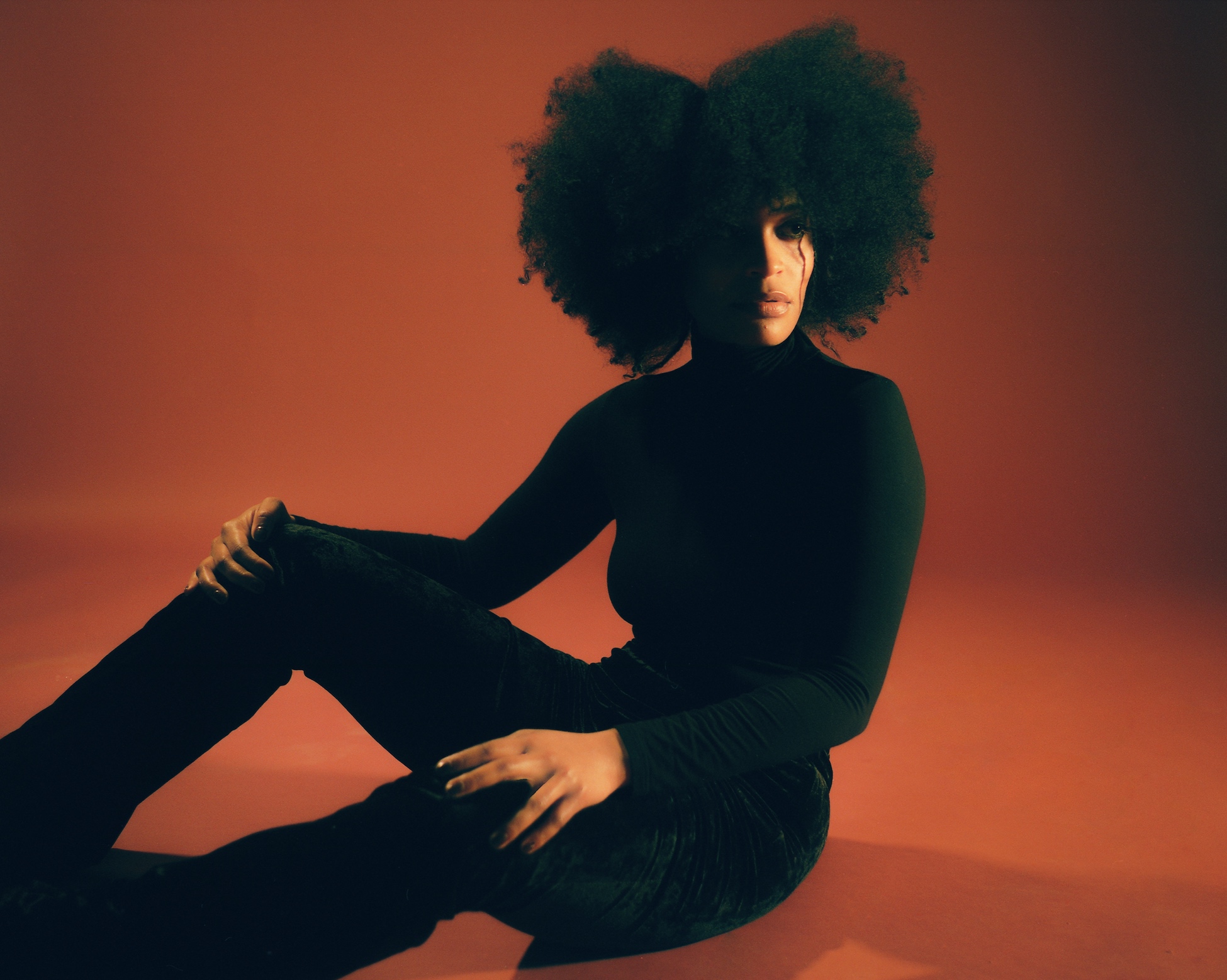The American Art Therapy Association represents a diversity of professionals, students, and organizations across the nation. We recognize and celebrate the work of our members at all levels through our Featured Member series.
August 25, 2022
“I never sought out to be an advocate let alone a therapist when I started this journey 11 years ago. However, as I was healing through my art practice(s) and sharing my experiences, it was the response from my community that helped motivate me to keep going.”
What excites (or inspires) you most about your job right now?

“Art Chess”. Acrylic on canvas. 2019. “Art Chess” illustrates the way my father and I communicate. Merging his avid love for playing chess and mine for therapeutic expression through the visual and performing arts. My relationship with the arts helped save my life – and our relationship. “Art Chess” is an ode to honor that and the concept of, “it’s never too late.”
Helping to make more accessible to my community the healing experiences – and benefits – of expressive arts.
Has working with a particular client group shaped your professional focus or specialty? What have you learned from working with these clients?
Children and teens inspire me often to trust myself and release inhibitions that may be hindering my personal growth and evolution. They encourage me to stay curious and vibrant in my stride.
How have race, diversity, and/or social justice impacted your work as an art therapist (or art therapy student)?
I have always been a “consider the root” thinker and feeler. As a millennial, Black, woman, I can date back to my childhood when I first experienced racism. I was living in Jacksonville, Florida. Walking through my neighborhood one day, a white girl in her front yard spat at me and called me a “nigger.” Impressionable and mindful of all the things I’d recently learned in my elementary studies about the Civil Rights Movement, Dr. Martin Luther King, Jr., Malcolm X and Rosa Parks, I felt compelled to throw rocks to defend myself. I remember being disciplined by my mother later that day and also feeling confused as to why I was getting in trouble.
Fast forward to my adulthood, in hindsight, I learned something valuable that day – don’t fight ignorance with ignorance. That little girl was expressing herself in the way that she was taught – as was I. Neither of us were at fault. I’ve carried that lesson with me ever since; during the times of George Floyd, #BlackLivesMatter, the January 6, 2021 coup at the United States Capitol and more recently the Roe v. Wade decision by the United States Supreme Court. Now more than ever, I feel compelled to create works that not only help convey a sense of healing but also illustrate personal narratives that may get overlooked in most spaces.
What are your hopes for the future of the art therapy profession?
More representation of BIPOC practitioners. More funding, support and accessibility in schools, hospitals, museums and other vetted institutions with direct, high-volume impact.
What advice would you give someone interested in pursuing a career in art therapy?
Transparently, I never sought out to be an advocate let alone a therapist when I started this journey 11 years ago. However, as I was healing through my art practice(s) and sharing my experiences, it was the response from my community that helped motivate me to keep going. There was, and still is, a very clear need for this work – specifically in BIPOC and LGBTQ+ spaces. I’m committed now to help meet and bring resolution to those needs. My advice? Move at an honest pace. Trust yourself, you are being guided.
shanina dionna

shanina dionna is a visual and performing artist, non-profit educator, mental health advocate and a certified Person-Centered Expressive Arts Therapy facilitator. In 2020, Philadelphia Magazine recognized her as the “Philly artist creating positive spaces for mental health conversations.” Her creative practice is informed by personal experiences through medical diagnoses, hospitalization, therapy treatments, self-care practices and an exploration of holistic measures for cognitive, behavioral and psychological healing. Since 2012, her arts advocacy has helped bridge the gap between local wellness institutions and marginalized communities throughout the Greater Philadelphia area. shanina dionna was recently accepted to Temple University’s Art Therapy program at the Tyler School of Art & Architecture and will begin her studies in fall 2022.
